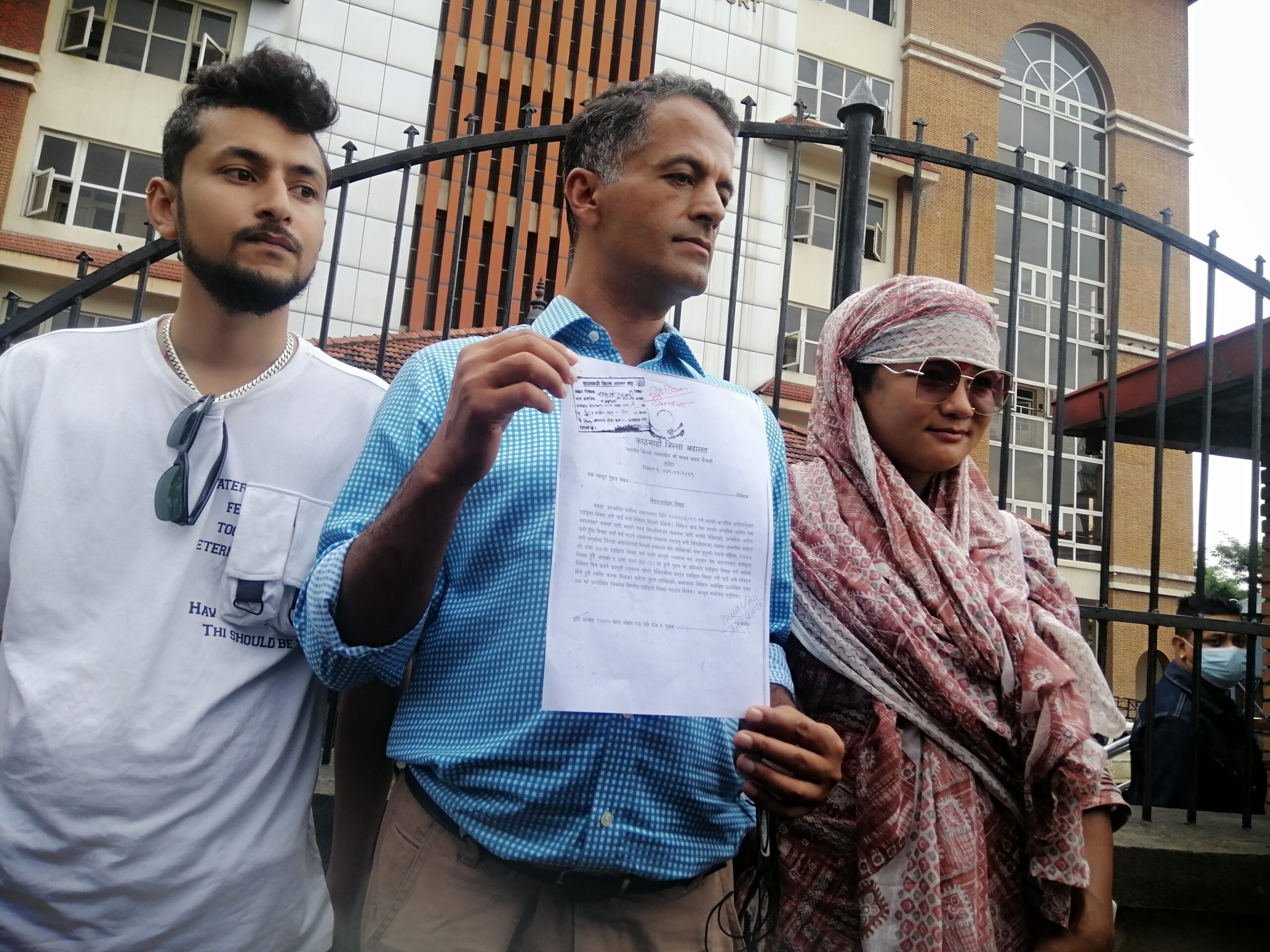
The ICJ hails the interim order made by the Supreme Court (SC) of Nepal on 28 June 2023 directing the establishment of a “transitional mechanism ensuring the marriage registration of same-sex couples and non-heterosexual couples”. The organization urges the government of Nepal to promptly implement the order by setting up an effective mechanism for registration of such marriages.
“Prohibiting same-sex couples from marrying violates human rights. Denial of same-sex marriage is outright discrimination based upon sexual orientation. The SC’s interim order will be a stepping-stone towards enhancing marriage equality and guaranteeing actual equality before the law and equal protection of the law without discrimination, and freedom from discrimination based on sexual orientation for all”, said Mandira Sharma, Senior International Legal Adviser, South Asia, and Myanmar at ICJ. The order was issued in response to a writ petition filed with the SC on 7 June 2023 by Pinky Gurung, the President of Blue Diamond Society – a civil society organization working for the protection of the human rights of lesbian, gay, bisexual, trans, intersex and queer (LGBTIQ+) persons in Nepal – and eight other applicants. The petition challenged the discriminatory marriage provisions in the National Civil Code, 2074 (2017) and pleaded for legal reforms and equal recognition of marriage between same-sex partners.
In its interim order dated 28 June 2023, the SC referred to a number of provisions in the Constitution of Nepal, including Article 18 (1), guaranteeing equal protection of the law, and further cited Section 69 (1) of the National Civil Code, 2074 (2017), which protects “everyone’s freedom to enter into marriage or conjugal life”. The SC’s order then directed the Government of Nepal “to register [same-sex] marriage by making a temporary registry for applicant couples” and other prospective same-sex couples wishing to marry.
“In the context of absence of legislation on same-sex marriage, we salute the SC’s interim court order and hope it will lead to the necessary legal reforms to ensure marriage equality for all”, said Sharma.
The Constitution of Nepal guarantees the “right to equality” prohibiting discrimination on various grounds, including “sex or marital status”. However, Section 67 of the National Civil Code, 2074 (2017) limits the definition of marriage to one between a man and a woman only. Similarly, Section 76 of the Code, concerning marriage registration procedures, is limited to a marriage between a man and woman only.
The ICJ, therefore, urges the government to take all necessary steps to implement the SC’s direction in letter and spirit and guarantee the human rights of LGBTIQ+ people in Nepal, including the right to marry.
Background
Earlier this year in its verdict in the case of Adheep Pokhrel, et al. v. Ministry of Home Affairs, Department of Immigration, Kalikasthan, et al. Certiorari, Mandamus / 079-WO-0198, the SC referred to Article 18 of the Constitution regarding the right to equality and explained that the use of a gender-neutral term “spouse” in Article 38 (6) of the Constitution includes a “same-sex spouse”. With this explanation, the SC had ordered the Government to issue a spousal visa recognizing non-heterosexual marriage between a Nepali citizen and a foreign national of the same sex.
Similarly, in 2017, in the Suman Pant case, the SC affirmed that, under the Constitution of Nepal, a person from “a gender and sexual minority” is entitled to the fundamental right to live a life with dignity without discrimination.
Additionally, in the landmark case of Sunil Babu Pant and Others v. Nepal Government and Others ( 2007) the SC ordered the Government of Nepal to make the necessary arrangements, including new laws or amending existing laws to prohibit discrimination based on gender or sexual orientation. Following this judgement, the Government of Nepal formed a committee that drafted “A Study Report on Same-Sex Marriage (2014-2015)”. This report recommended that the Government should revise the law to ensure recognition of same-sex marriage. It further recommended that the National Penal Code and the National Civil Code “should treat marriage between same-sex and different-sex couples equally and extend the definition of marriage from a man-woman relationship to a relationship between any two individuals.”
Copyright © All right reserved to pahichan.com Site By: Sobij.